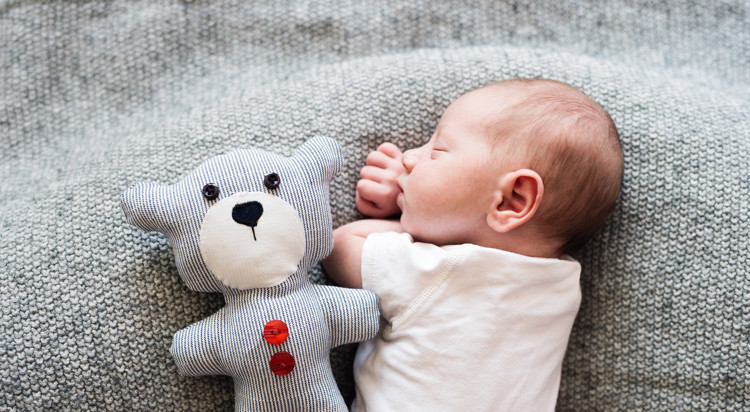
How to handle visitors after giving birth
Putting you and your baby first

18 July 2023
Introducing a new baby to friends and family can be one of life’s biggest joys. But while some parents are excited at the prospect of visitors meeting their bundle of joy, for others it can feel overwhelming. Remember, there’s no one size fits all approach and focusing on your and your baby’s needs should be your priority.
Ternity Group’s Nourish Baby Health Writer, Jane Barry gives us her top 10 tips on how to manage visitors.
1. Make sure you and your partner are on the same page
Start the conversation early (while you’re pregnant) about managing visitors so that you have a plan when your baby arrives. Don’t assume your partner has the same expectations about visitors as you do. What you each consider to be ‘normal’ may be very different and starting the conversation early can help you to avoid feeling overwhelmed later.
2. Speak with your nearest and dearest before your baby is born
Have some honest chats about what you’d like to happen in terms of visiting. Tell your friends and family that you’re excited about them meeting the new baby and that you or your partner will be in contact when you’re ready to arrange a time for visits. If you’d prefer no visitors in hospital, let people know that (and hospital staff can put a sign on your door to say you’re resting). Remember, you’re allowed to put yourself first!
3. Ask your partner to manage visitors
Speak openly with your partner about the possibility of them needing to be the gatekeeper for visitors. It’s reasonable for them to have the ‘hard conversations’ about giving you and your baby time to get to know each other without visitors there. Ask that they check to see if you’re sleeping or if you’d prefer some time as a family before letting anyone visit. It’s also fine to be selective about who you want to see you and when.
4. Keep people updated (to avoid unexpected visits!)
Send out group texts and let people know it may be a while before you get back to them because you’re a little preoccupied. If you’ve got the time (and inclination!), you or your partner can send updates and photos on how you and your baby are going. When you’re ready for visitors, ask your friends and family to coordinate a day and time which suits you.
5. Prioritise you and your baby first
You may find it difficult to put yourself first but becoming a parent requires a whole new range of skills – prioritising your needs and your baby’s is just one of them! It can take up to six weeks (or longer) to recover from labour and birth and it’s important to rest and focus on getting to know your baby during this time. Building confidence and skills with breastfeeding, changing, settling and getting to know your baby’s cues will take many hours. You may not want to be interrupted in the early days. If you’re anxious about being overwhelmed with visitors when your baby is born, you can always keep your exact due date to yourself.
6. Plan your visits
You may find people coming to you easier to manage but if you know people who are likely to overstay their welcome, it may be better for you to go to them. Plan for timed visits that are convenient for you and, when making plans, let your hosts know how long you’re likely to be able to stay. Calm, quick visits to say hello are easier to manage than visits that last hours.
7. Ask people to stay away if they’re unwell
Your baby’s immune system is still developing, and you’ll need to be their advocate to ensure their health is not compromised. It’s entirely reasonable to ask people not to visit if they’re:
- sick
- have cold sores
- haven’t been vaccinated for Covid and whooping cough
- not agreeable to wearing a mask when they’re near you and your baby
- not prepared to wash their hands before handling your baby.
8. Be flexible and prepared to change your plans
You may plan to isolate yourself after your baby is born but then find you’re keen to catch up with people. Alternately you may think you’ll be up to seeing people and (for all sorts of reasons) prefer to just hunker down with your baby. Be patient and kind to yourself as you find your way through the new baby haze.
9. You don’t need to entertain people
Don’t feel you need to cater to visitors by preparing food and drinks. Take them up on offers to bring food and say yes to helpful offers of support. If people ask you how they can help, make some suggestions – folding washing, meal preparation, caring for older children, the list is endless! Remember, most people will be understanding about the best time to visit (and when to leave!) but don’t be afraid to speak up if not.
10. Ration your time for visitors
Prioritise yourself and your baby each day – the early days and weeks are precious! There will be times when you don’t want to see anyone and sit in your pyjamas eating cereal on the couch. That’s fine! Be kind to yourself and quarantine days and even weeks to just settle in and learn what’s involved in managing your own little family.
Sources:
Out-of-town guests & visitors after birth - COPE
Nourish Baby Health Writer Jane Barry has qualifications in general, paediatric, immunisation, midwifery and child health nursing. She holds a Bachelor Degree in Applied Science (Nursing) and has almost 35 years’ specialist experience in child health nursing.




